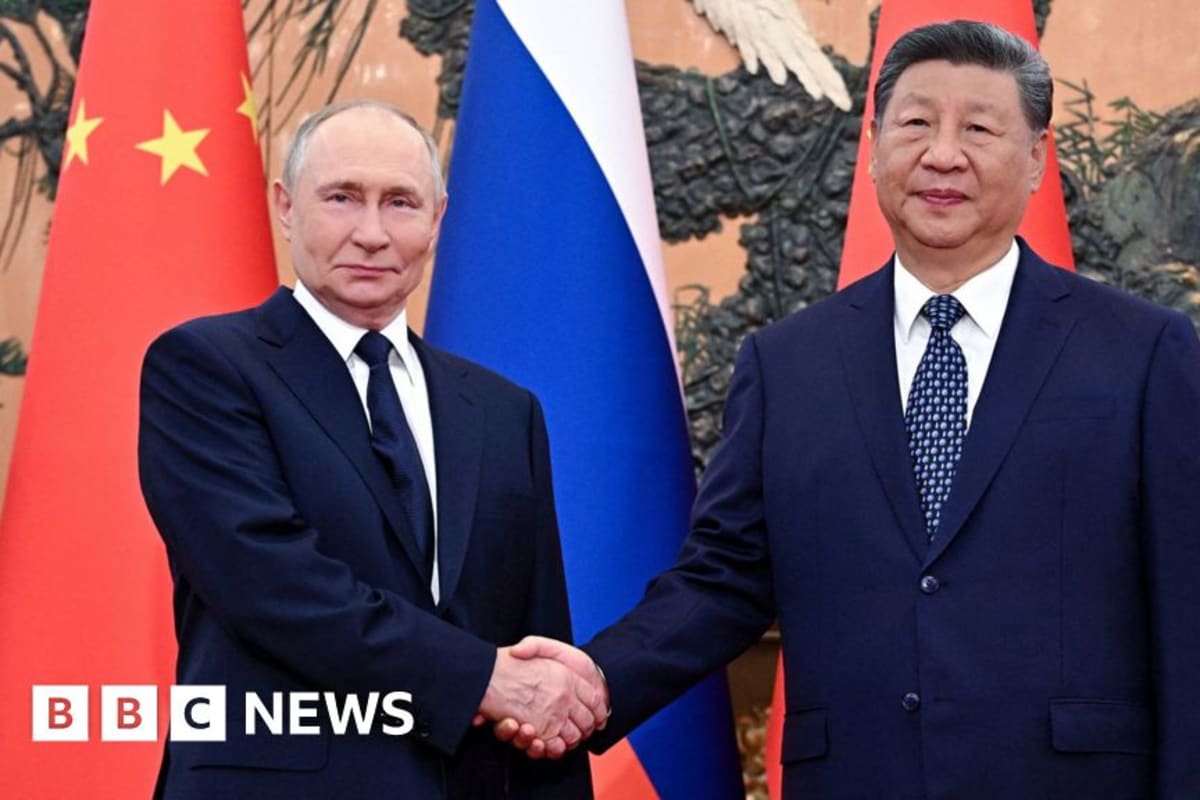Putin, Xi Celebrate 'Unprecedented' China-Russia Ties

Russian President Vladimir Putin's visit to Beijing on September 2nd, 2025, solidified the already robust strategic partnership between Russia and China, sending ripples throughout the international community The meeting, culminating in a joint declaration of an "unprecedented" level of cooperation, signals a potential paradigm shift in global geopolitics, particularly concerning Southeast Asia The leaders' pledge to work towards a "more just and reasonable global governance system" is widely interpreted as a direct challenge to the existing Western-led international order, advocating for a multipolar world where Beijing and Moscow wield significantly greater influence The timing of this strengthened alliance is particularly significant The global landscape is currently fraught with escalating geopolitical tensions, fueled by the ongoing war in Ukraine, unresolved disputes in the Indo-Pacific, and growing economic competition Russia's military intervention in Ukraine has triggered crippling Western sanctions, compelling Moscow to seek closer economic and political alignment with Beijing China, in turn, faces increasing pressure from the United States and its allies concerning issues such as Taiwan, its assertive claims in the South China Sea, and its human rights record This shared perception of Western pressure and containment forms a crucial foundation for their burgeoning partnership The "unprecedented" ties between Russia and China are manifesting themselves across various sectors Economically, the two nations are actively deepening their trade and energy cooperation Russia is becoming an increasingly vital supplier of energy resources to China, while simultaneously benefiting from substantial Chinese investment in its infrastructure and economy This growing economic interdependence provides a powerful incentive for both countries to maintain and strengthen their close relationship Militarily, the two nations have intensified joint military exercises, including naval drills in strategically important waters, and are engaging in technological collaboration, potentially altering the regional balance of power in the Indo-Pacific These joint exercises demonstrate a growing interoperability and coordination between their armed forces For Southeast Asia, the burgeoning China-Russia partnership presents a complex and multifaceted scenario Many Southeast Asian nations maintain crucial economic ties with both China and the West, creating a delicate balancing act The deepening Sino-Russian partnership introduces a potential dilemma for these countries, forcing them to navigate a more complex multipolar world with heightened strategic awareness Some Southeast Asian nations may see opportunities for closer cooperation with Russia and China, leveraging their combined economic clout to secure advantageous trade deals, attract infrastructure investments, or enhance their bargaining power in regional forums Others might perceive the strengthened partnership as a potential threat to regional security and sovereignty, particularly in the context of the unresolved South China Sea disputes, where China's assertive actions have already caused considerable friction with several ASEAN member states The stated focus on establishing "a more just and reasonable global governance system" implies a desire to reform, or even potentially replace, existing international institutions, challenging the long-standing dominance of the United Nations and other Western-dominated organizations This aspiration encompasses both economic and geopolitical dimensions Economically, it could involve a re-evaluation of international trade rules, financial institutions, and development assistance frameworks, potentially favoring nations aligned with China and Russia's vision of a multipolar world Geopolitically, it could herald a significant shift in global power dynamics, potentially leading to a more fragmented and less predictable international system, where traditional alliances and norms are increasingly challenged However, the ambiguity surrounding the specific details of this proposed "more just and reasonable" system raises legitimate concerns among observers and policymakers alike The lack of transparency and a clear definition of the principles underpinning this new system could lead to uncertainty, instability, and a erosion of trust in international relations, potentially hindering regional cooperation and economic development in Southeast Asia Furthermore, the potential for increased military cooperation and technology transfer between Russia and China raises anxieties about regional security, potentially triggering an arms race and further destabilizing the already complex geopolitical environment in the Indo-Pacific The implications for smaller nations caught between competing great powers are especially significant In conclusion, the deepening China-Russia partnership marks a pivotal moment in global geopolitics, with potentially far-reaching consequences.
For Southeast Asia, this evolving relationship presents both significant opportunities and formidable challenges A careful and nuanced consideration of its multifaceted implications—economic, political, and security-related—is paramount for Southeast Asian nations as they strive to safeguard their sovereignty, promote sustainable economic growth, and maintain regional stability in this rapidly changing world order It remains imperative for Southeast Asian nations to actively engage in robust diplomatic efforts, foster stronger regional partnerships within ASEAN, and develop proactive strategies to adapt to the shifting global landscape Further in-depth analysis is critically needed to fully comprehend the long-term consequences of this strengthened partnership and its ultimate impact on the regional balance of power The potential for both increased cooperation and competition among Southeast Asian nations in response to this evolving dynamic should also be closely monitored and analyzed to inform effective policy responses
